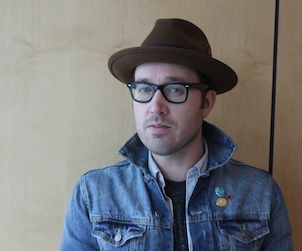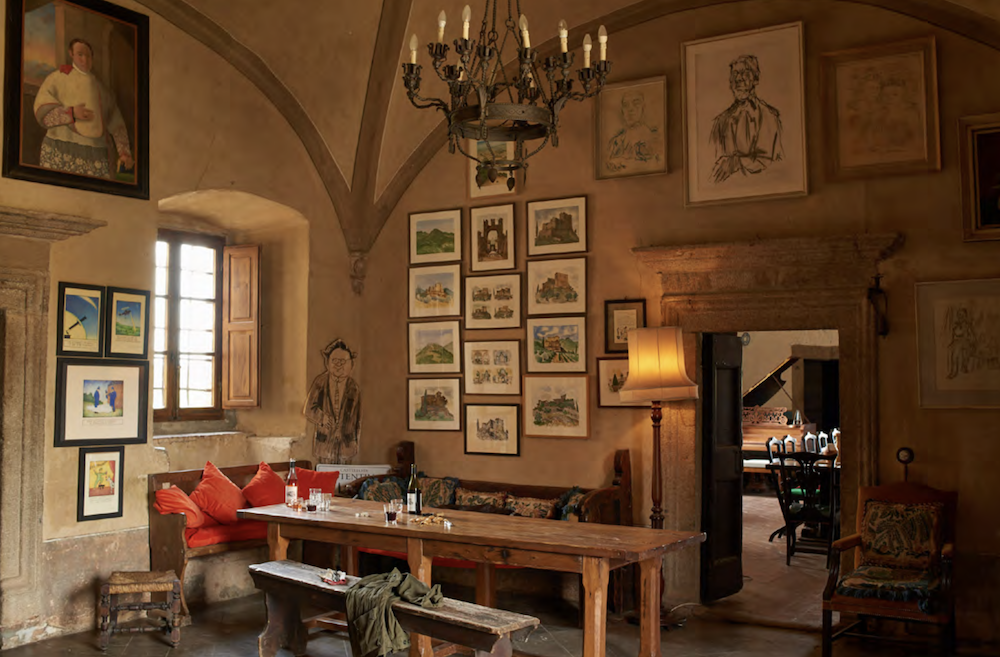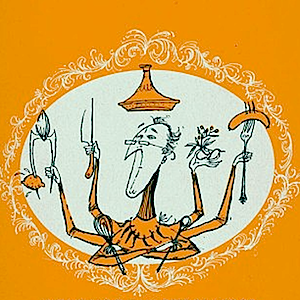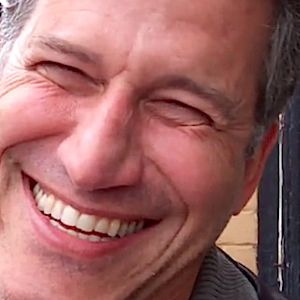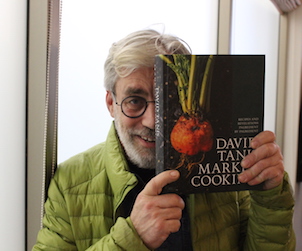Malcolm Jolley talks to Canada’s culinary Instagram sensation turned author.
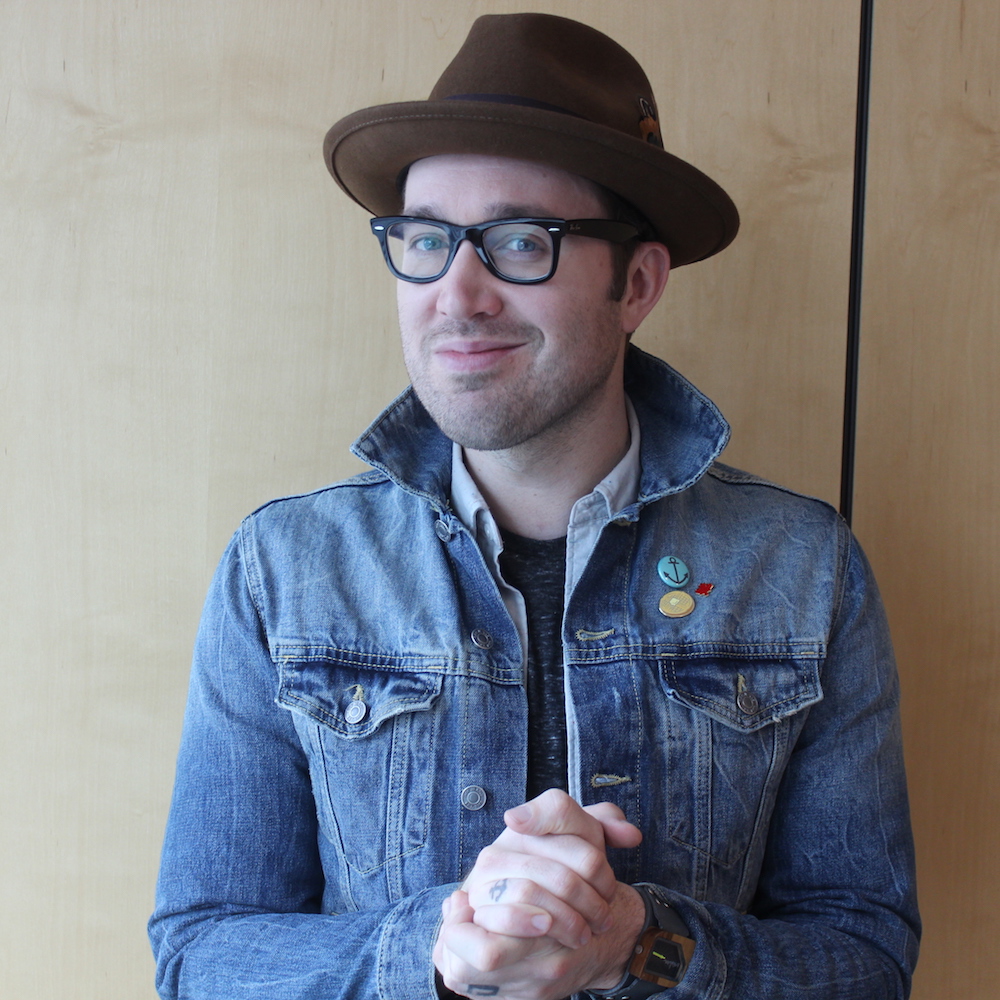
Dennis Prescott opened an Instagram account a few years ago to store all the pictures of food that he had on his phone. He used his email handle, dennistheprescott for fun and as that account became famous, garnering the praise of Nigella Lawson, no less, he’s kept the name and shares his photos with over 350,000 followers. Prescott’s social media renown led to a regular recipe column at Food & Wine Magazine, which he develops and shoots from his home in Moncton, New Brunswick. The Maritimer has just published his first cookbook, Eat Delicious: 125 Recipes For Your Daily Dose of Awesome, and was in Toronto recently to launch it, where I met him at his publisher’s offices to conduct the interview below. Prescott’s are, I think, best described as ‘smart casual’, familiar foods brought up to a higher gastronomic plane. What’s striking about Eat Delicious, and Prescott’s work in general, is the art direction and photography. In a golden age of food media culture, Prescott’s style and composition manages to leap out and ahead, and his recipes entertain as they compel his readers to get in the kitchen and cook.
This interview has been edited for length, clarity and style.
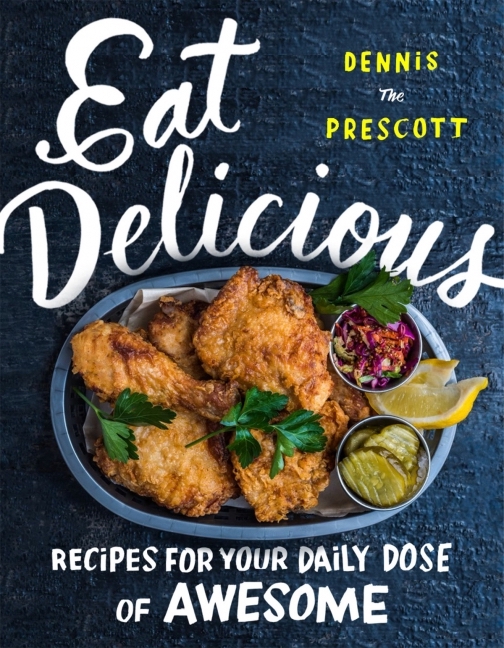 Good Food Revolution: So you were a musician, recording an album with a band in Nashville, and you were broke. That’s how you started cooking?
Good Food Revolution: So you were a musician, recording an album with a band in Nashville, and you were broke. That’s how you started cooking?
Dennis Prescott: We were working in a recording studio, for about two years on and off. The benefit of being an entertainer is that you can get an entertainer’s working visa to stay in the U.S., but the negative is that you can’t work at anything else. So, if you’re not touring, you’re not making money. If you’re in the studio, you’re not touring. We worked with some incredible producers, and had some great experiences, but for me it was the end of a ten experience of being a musician and being o the road and I was tired of living in a 15 person van and sleeping on an air mattress for two years. All those things weigh on you a little bit and I kind of knew that my time doing this was coming to a close. But I was terrified because I didn’t have another creative outlet. I knew that I wanted a creative outlet, and I couldn’t see how it translated going from a musician’s life to an office job. I wished that I could have. It seemed pretty nice to have that kind of stability and to be able to pay your cell phone bill on time. So, thankfully while I was in Nashville, I found food.
GFR: At the public library, no less?
DTP: I was eating pasta with butter on it. I was eating from the ‘dollar menu’. That’s it. That’s all I could afford. Every vividly remember walking into the studio and seeing one of my friends eating Alpha-Getti cold out of the can. And coming home to make pasta with butter, and nothing else, because I didn’t know how to cook. And it was bad for me: I wasn’t feeling good. I was not living the easiest life. Emotionally I was going through some stuff, as well, and it just came to a kind of head with me and I knew I had to make a change; something had to give.
So, I thought that maybe I should get a cookbook. But I couldn’t afford a cookbook, so I went to the public library, probably at the suggestion of someone else. I took out my first library card, aside from the ones assigned to me at school, and took three cookbooks out by the same person. I had no idea about the author. Nothing. It was Jamie Oliver.
GFR: With whom you now share a publisher!
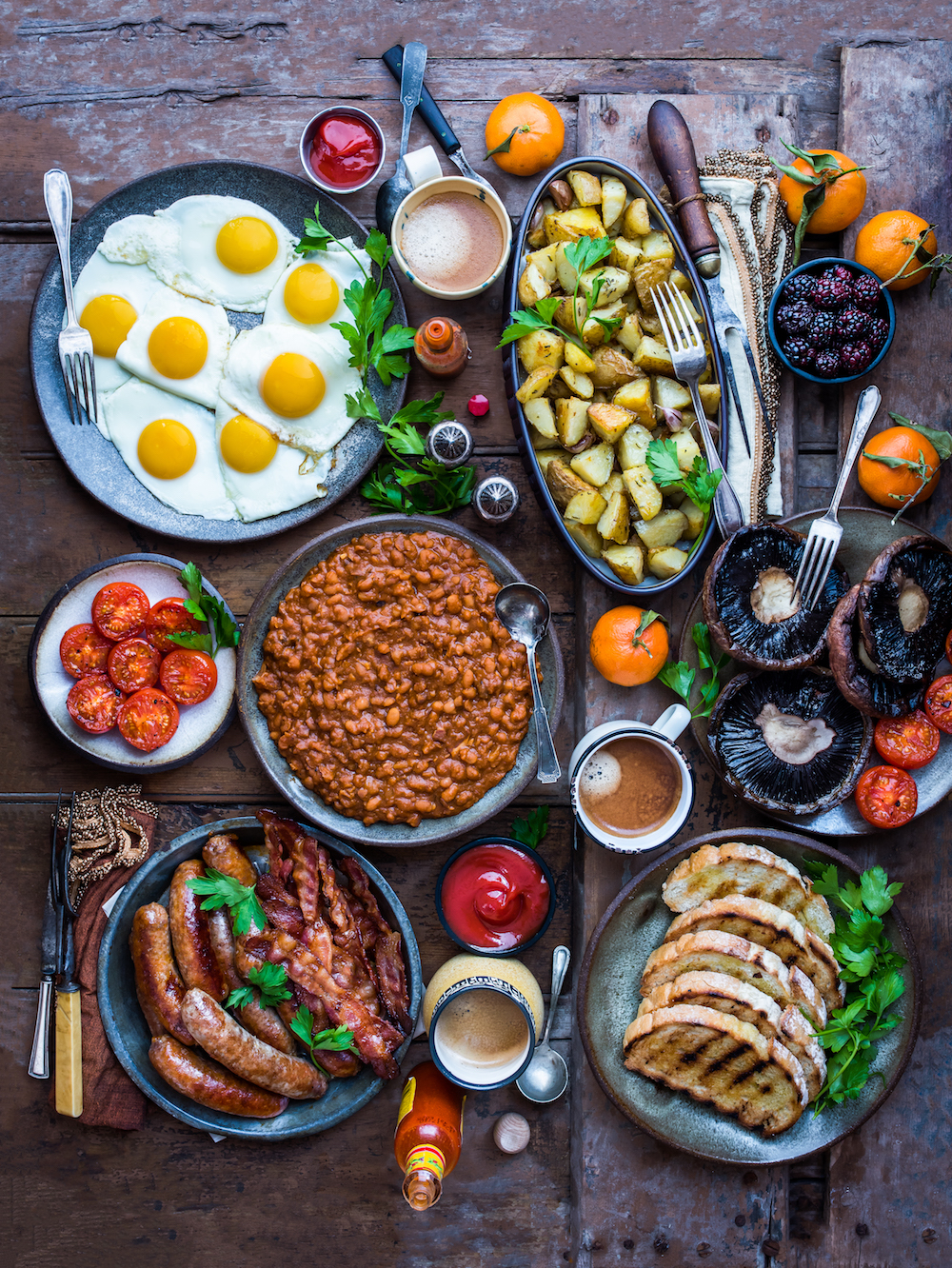
DTP: I know! It’s amazing. TO me it’s a dream come true. I have oceans of respect for that guy and what he’s done in terms of building a food community that cares about what goes into their food and food sustainability. And viewing good food as important and something everyone should have access to; all of those things. So, he’s massively inspiring to me, but initially I had no idea who he was. I just looked at the cover and thought this guy seems really nice, and when I opened the book the dishes seemed really approachable. I thought I might be able to pull this off with some practice
I just started by cooking my way through those Jamie Oliver cookbooks. I became obsessed and interested in everything about food. I was cooking so much – four, five or six recipes a day for me, roommates, bandmates, people at the studio – that I started taking iPhone photos to document my experience so that I didn’t forget what dishes I had made two weeks before. I wanted to keep learning. Then, Instagram happened. My first Instagram photo is a selfie, actually. I really had zero agenda with Instagram, but it became a portal, a social media platform, that allowed me to share all of these photos, which was good because my iPhone, which was probably one of the first iPhones, was full of food photos. That was all that was on my phone, so when I found a photo sharing platform, food photos was going to be what I was going to share. And they were terrible photos. Terrible. But it was really fun to share and connect with that online community.
GFR: But something happened, right? You got a boost?
DTP: Slowly and surely I connected with people online, and then one day, one Easter weekend, Nigella Lawson reached out to me. Sorry: not reached out to me, but to a photo of mine. She posted a photo on the main Instagram place, @Instagram, their main account with her top accounts to follow. For some reason she included me in this list. I had no idea she followed me. But within 24 hours I had gained 10,000 new followers. I was at my in-laws’ house, and I remember it because my phone kept dying. I hadn’t turned off my notifications for the ‘likes’. It was amazing, unexpected and absurd.
GFR: What was the picture?
DTP: It was her photo, but with me tagged under it, so people were able to find my account and find access to what I did that way. It was really totally unexpected. Then, around the same time, Food & Wine magazine got in touch, and I accredit them to really pushing the Dennis The Prescott work and photographs to a totally different level because they gave me a platform. They said, ‘Hey, will you create ten dishes for us and write a column called Stacked.” Initially it was just ten, but it turned into a column that I still write. Not as often as I would like to now, because life has got a little busy, but it’s continued and they have been amazing and supportive of me along the way. So, those two things happened around the same time and I thought, wait… maybe this is more than just a hobby.
DTP: Well, I thought, this probably isn’t really a job, but maybe I can reach a few more thousand people. But then, slowly and surely it just kept creeping and creeping and creeping up. Then it was developing relationships with brands, working on recipe development, and I keep getting busier. But it was really organic, and I know that word seems to be over used, but it really was in the sense that I working another job at the time. I was working in the trucking industry, running logistics for a company. I was in a totally different career world in the interim between music and food, and doing Dennis The Prescott for fun. There was no plan for this. It kind of just happened. A lot of times people will ask me what was the turning point, what is the magic pill? I don’t think there is one for anything. I don’t undervalue how fortunate I have been to have connected with a passion, that was unexpected, and with a community online, which is incredible. But it definitely didn’t happen overnight. It happened quickly, but it didn’t happen overnight and it’s been gradual throughout.
GFR: Did you have to have a serious conversation with your wife when you decided to quit the trucking job and do Dennis The Prescott full time?
DTP: Honestly, it was she who had been gently pushing me to do it for about nine months before I did or thought I could. She is such a supporter in the creative world. She’s a painter, she’s an artist. She works for World Vision Canada. She’s always followed her passions and she’s always supported me in following my passions. She was great to get me to step off of that cliff. It’s terrifying to see if you can actually fly because you might fall. And I think you do fall a little bit along the way. You fail, and the only way you get back and get better is by failing forward and trying to learn from your mistakes. But that initial jump is terrifying and I don’t know if I would have made it on my own without her support.
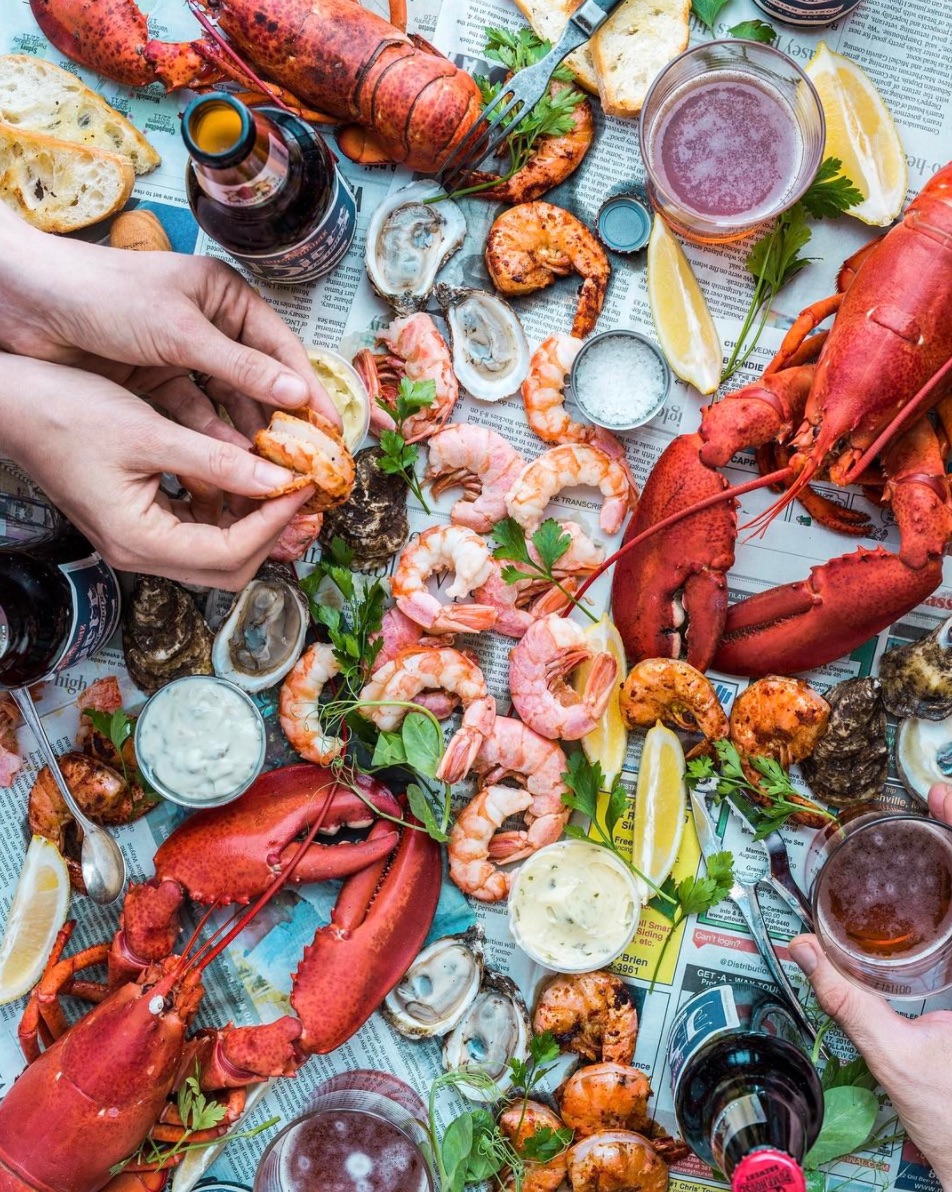
GFR: How do you work? How do you fill your account, and fill this book with all these beautiful pictures and interesting recipes?
DTP: In terms of Eat Delicious, these recipes are globally inspired comfort food, with massive inspiration from my Maritime roots. We have access to, what I believe is, some of the best seafood in the world. We have amazing local providers and producers, and I wanted to highlight that. The book is true to my daily life. I think sometimes we undervalue Canadian cuisine, but it’s truly special. We have amazing food here. I have been so fortunate to travel to places like Kenya and Somalia, China and Italy and France and wherever. I travel to eat and hove found these dishes that totally rocked my world. I needed to recreate them and find my spin on these dishes. It’s always about something that’s affected me, that’s part of my story. There’s a chana masala dish in the book. I remember being in Brighton, in England. We were near the pier and I was with the producer we were working with on a record at the time – the band was all there. I had never really eaten Indian food before. I had butter chicken once, I think. He said, why don’t you try this dish that he had ordered. It was chana masala and it really just kind of struck me. Something could be so delicious and also be vegetarian. It was hitting me on angles: wait, this has no meat in it and it’s delicious. I hand’t ever had access to delicious vegetarian food. It had all these fragrant curry favours that I had never had before. This is something that really affected me, so I really wanted to tell that story and give that recipe that really changed my palate and I want to show respect.
GFR: And, I think, just as you were initially inspired by Jamie Oliver, the recipes in Eat Delicious are approachable and accessible. I think you have developed them so pretty much anyone can cook them in their own kitchen, right?
DTP: Of course! Approachable, delicious and attainable. Attainable is relative. The first time you make brioche bread, it may or may not turn out. It’s difficult thing to make and bakers will perfect it over years, and years, and years. But with some practice, and with some care, and some love, you can perfect it because I did. I learned guerrilla style because I didn’t have access to brioche burger buns on the East Coast and I wanted a brioche burger bun! And I didn’t figure it out the first time: they were rock hard. But you don’t necessarily need a culinary degree to cook anything in the book, because this is how I learned to cook. I modeled myself after a guy who was trying to get people like e to learn to cook. I am not trying to imitate Jamie Oliver, but he is so inspiring in terms of that overarching philosophy of delicious, approachable and attainable food.
I wanted to make a book that would really make people happy. At the end of the day, I want the dishes to taste delicious, look nice, and be something that someone could be really proud of.

